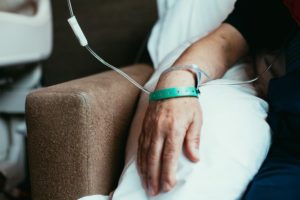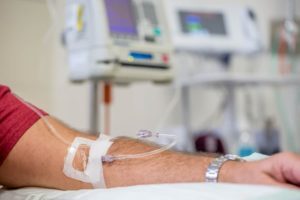
Personalized Medicine in Cancer Treatment
When you or a loved one is diagnosed with cancer, receiving care that is tailored to your individual needs is crucial to achieving the best
HIPAA Alert: Potential Data Breach Learn More
Questions on Oncology, Hematology and/or Infusion Clinical Services due to COVID-19 Crisis – CALL 833-698-1623
Important Information for Our Patients Regarding the Coronavirus.
RCCA Providing Area Cancer Patients with Access to Care During Coronavirus Outbreak
RCCA Offering Patients Virtual Visits During Coronavirus Pandemic
While undergoing radiation therapy, some patients experience very unpleasant side effects. But with the support of a care team and some helpful coping mechanisms, anyone can get through the worst of treatment. Here are some tips from the staff at Regional Cancer Care Associates to help manage some of the side effects of radiation therapy.
One of the most common side effects of radiation therapy is fatigue. Listen to your body and get some rest. Remember to pace yourself throughout the day so you don’t exhaust your energy. Scheduling time for naps can help you stay productive while also getting some much-needed sleep.
If you’re unable to fall or stay asleep due to insomnia, stress, anxiety or pain, talk to your doctor about possible medications that might be able to help. You can also try to follow a bedtime routine, like turning off electronics and not eating or drinking right before bed.
During cancer treatment, it’s important to maintain your weight. Unfortunately, a lack of appetite, nausea, vomiting and taste changes can make it difficult to eat. Consume small, frequent meals of nutrient-rich foods throughout the day. Try to incorporate foods that are high in protein and fat. If these problems persist, intravenous nutrition may be required to help keep your body strong.
If you’re feeling stressed, depressed or anxious, try to redirect your energy into positive outlets, like exercise or creative projects. Be sure to lean on your friends and family, get out and get plenty of sleep. It can also help to join a support group.
Your nurse will provide instructions for caring for your skin after radiation therapy and may offer special creams to help ease any discomfort. Avoid putting anything too hot or too cold onto the skin, and wear protective clothing and SPF when out in the sun.
If you experience nausea, vomiting and/or diarrhea, your doctor can likely offer you some anti-nausea medication. In addition, eat foods that are easy to digest, and remember to stay hydrated.
If you have dry mouth, drink lots of water, eat moist foods and chew on ice chips or sugar-free gum or candy. And if you develop mouth sores, eat soft, room-temperature foods. Avoid anything acidic or carbonated.
If the side effects of radiation therapy persist or become severe, tell your health care team immediately. Otherwise, follow these coping tips and try to remain positive to help get you through the rest of treatment. Questions? Contact your local RCCA office.
For more information or to schedule an appointment,
call 844-346-7222. You can also schedule an appointment by calling the RCCA location nearest you.

When you or a loved one is diagnosed with cancer, receiving care that is tailored to your individual needs is crucial to achieving the best

Infusion therapy is a treatment modality that administers medications intravenously. While most people associate infusions with cancer treatment, several different conditions can be managed and

Immunotherapy is an advanced type of cancer treatment. Instead of surgical procedures or radiation therapy, it works alongside the body’s natural immune system to fight

Regional Cancer Care Associates is one of fewer than 200 medical practices in the country selected to participate in the Oncology Care Model (OCM); a recent Medicare initiative aimed at improving care coordination and access to and quality of care for Medicare beneficiaries undergoing chemotherapy treatment.